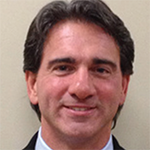Historically, residents “are task trained to cut out tissue and look at audiograms in people who have already become ill,” said Dr. Eavey. “We should be trying to prevent populations of people from getting sick in the first place. We are just whetting the whistles of residents at the beginning of their careers so that they can decide if they wish to further devote themselves to serious training in leadership as some already do for advanced clinical training in fellowships.”
Explore This Issue
September 2015Even those in mid-career can benefit from additional training, he added. “For faculty, they need to learn how to come to grips with the fact that they might be struggling because they don’t understand reimbursement changes that come with the Affordable Care Act or understand what to do with the concept of population health,” he said. While some may opt to earn a formal degree in leadership, there are many different courses and literature available that can help physicians understand exactly how to work with healthcare changes. In his department at Vanderbilt over the last five years, Dr. Eavey said that six faculty/staff members have matriculated for an MBA equivalent in healthcare management, two have earned master of public health (MPH) degrees, one has earned a master’s degree in technology transfer, one has earned a doctorate of education, one has earned a doctor of nursing practice degree, and several more individuals are expected to earn other formal degrees. Others have opted for shorter courses in business, decision making, public health, and quality to help physicians understand how to work with and lead healthcare changes.
“There are skills they can get that they will need in the future,” he said. In the past, he added, doctors often looked at the end of their residency as a time when they’d join a practice and their career management would reach a steady state. “But we are now experiencing that there is no longer a steady state: There will be a need for supplemental skills,” he said. “They will help you as you move forward, and you’ll be training and refreshing for the rest of your life.”
Volunteering for Change
For others, taking on leadership roles in professional organizations offers a chance to polish managerial skills while helping to give back to the profession. Stacey Ishman, MD, MPH, surgical director of the Upper Airway Center and an associate professor of otolaryngology-head and neck surgery at the Cincinnati Children’s Hospital Medical Center at the University of Cincinnati in Ohio, has held numerous positions for a variety of associations, including the International Surgical Sleep Society, the American Society of Pediatric Otolaryngology, and the American Academy of Otolaryngology-Head and Neck Surgery (AAO-HNS), for which she is currently a nominee for the board of governor’s chair.
 I had inadequate knowledge of many things before assuming a leadership position. Doing so gives you a different appreciation of what you do day to day, a better understanding of the issues of bringing new technology to clinicians, coding, and reimbursement at the governmental and payer level. —John M. DelGaudio
I had inadequate knowledge of many things before assuming a leadership position. Doing so gives you a different appreciation of what you do day to day, a better understanding of the issues of bringing new technology to clinicians, coding, and reimbursement at the governmental and payer level. —John M. DelGaudio“I think leadership is very important in terms of advocacy,” said Dr. Ishman, who cited others in the AAO-HNS who are working on determining fair rates for reimbursement. “There are a number of legislative issues where we are making sure we retain funding for research, and those kinds of opportunities require people who are willing to jump in and talk to their legislators and organize things at the Academy level. If you have strong leadership, you don’t need every member to do it. But others are working very hard to make sure we are effectively interacting with insurers and policy makers, to make sure the people who are doing the work are getting paid.”